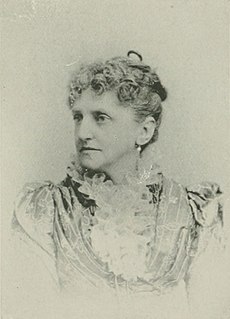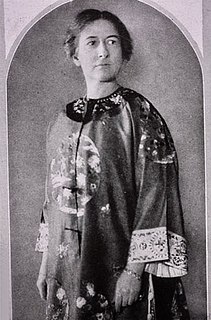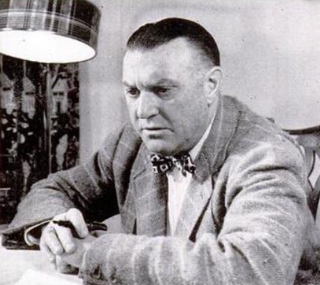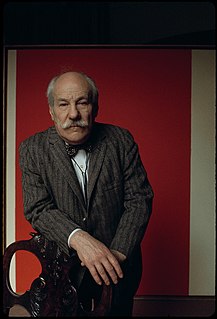A Quote by Lillie Devereux Blake
It is better to have the power of self-protection than to depend on any man, whether he be the Governor in his chair of State, orthe hunted outlaw wandering through the night, hungry and cold and with murder in his heart.
Related Quotes
For who can wonder that man should feel a vague belief in tales of disembodied spirits wandering through those places which they once dearly affected, when he himself, scarcely less separated from his old world than they, is for ever lingering upon past emotions and bygone times, and hovering, the ghost of his former self, about the places and people that warmed his heart of old?
I feel that non-violence is really the only way that we can follow because violence is just so self-defeating. A riot ends up creating many more problems for the negro community than it solved. We can through violence burn down a building, but you can't establish justice. You can murder a murderer, but you can't murder murder through violence. You can murder a hater, but you can't murder hate. And what we're trying to get rid of is hate, injustice, and all of these other things that continue the long night of man's inhumanity to man.
Two ideas are psychologically deep-rooted in man: self-protection and self-preservation. For self-protection man has created God, on whom he depends for his own protection, safety and security, just as a child depends on its parent. For self-preservation man has conceived the idea of an immortal Soul or Atman, which will live eternally. In his ignorance, weakness, fear, and desire, man needs these two things to console himself. Hence he clings to them deeply and fanatically.
Amid the worry of a self- condemnatory soliloquy, his demeanour seemed grave, perhaps cold, both to me and his mother. And yet there was no bad feeling, no malice, no rancour, no littleness in his countenance, beautiful with a man's best beauty, even in its depression. When I placed his chair at the table, which I hastened to do, anticipating the servant, and when I handed him his tea, which I did with trembling care, he said: "Thank you, Lucy," in as kindly a tone of his full pleasant voice as ever my ear welcomed.
Just because a man is dressed in a clean white robe does not mean his heart and hands are clean. Any man who neglects his conscience is a dangerous animal. Never judge a man by his image. Images can be bought or produced by any Hollywood producer, marketing team or fleet of stylists. Even kids know how to wear amazing costumes for Halloween. Always judge a man by the coloring of his heart and only his heart. Truth can be found in his record of actions, not intentions.
Misery, in cold truth, is a weight less upon those who undergo it than upon the minds of those who see it; for he who is cold and starving is so busy in his efforts to obtain warmth and food that he has little time for self-pity, and endures his unhappy condition better than those who take it upon themselves to suffer for him.
In the present age, man proves his separation from his Creator by his spirit of self-sufficienc y and positive rejection of God. The present issue between God and man is one of whether man will accept God's estimate of him, abandon his hopeless self-struggle, and cast himself only on God who alone is sufficient to accomplish his needed transformation.
That prayer has great power which a person makes with all his might. It makes a sour heart sweet, a sad heart merry, a poor heart rich, a foolish heart wise, a timid heart brave, a sick heart well, a blind heart full of sight, a cold heart ardent. It draws down the great God into the little heart; it drives the hungry soul up into the fullness of God; it brings together two lovers, God and the soul, in a wondrous place where they speak much of love.

































